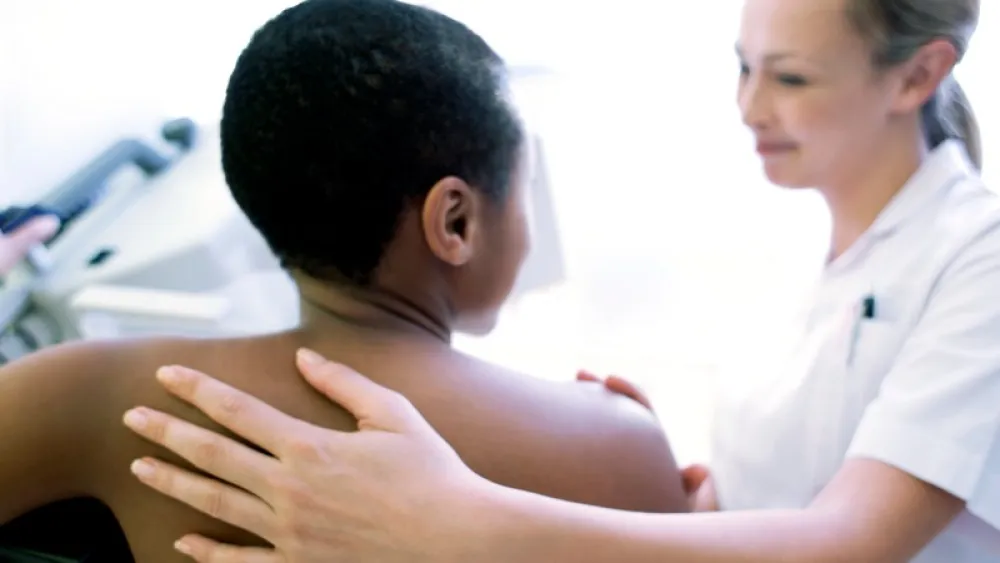




Cancer Care
Spare a Few Minutes


Ninety-five percent
Catch breast cancer early, and today the chances of surviving breast cancer are extremely high – 95%.
“It’s treatable,” said Dr. Linda Snider, a Diagnostic Radiologist at Methodist Estabrook Cancer Center. “You just have to find it.”
A simple test
Finding it is the job of a quick, simple and very important test. The mammogram is the best way to detect even the earliest breast cancers.
“A mammogram has been shown to detect breast cancer before you or your doctor could feel it,” said Dr. Snider. “On average, mammograms can detect breast cancer about five years before it can be felt, decreasing your risk of cancer by about 15 to 30 percent. The earlier we can find cancer, the more treatment options you have.”
So what is a mammogram?
“A mammogram is an X-ray of the breast tissue and it’s done from multiple angles,” said Dr. Snider. “Though women should have it done every year starting at the age of 40, if you have a problem, you should come in before the age of 40.”
That includes problems such as:
A new lump in or near the breast or under the arm
- Thickening or swelling of part of the breast
- Irritation or dimpling of breast skin
- Redness or flaky skin in the nipple area or the breast
- Pulling in of the nipple or pain in the nipple area
- Nipple discharge other than breast milk that occurs without squeezing
- Any change in the size or the shape of the breast
- Pain in any area of the breast
Taking it on the road
Soon, Methodist will have another tool in the arsenal for helping mammograms be more convenient for women in the Omaha area. Methodist is partnering with Susan G. Komen Great Plains to bring a 3D mobile mammography unit to the Omaha area. The program will offer on-site 3D mammography services to local businesses as well as underserved/underinsured women at Charles Drew Health Center and One World Community Health.
“The mobile mammography program is so important because it will go to underserved populations that don’t have the same access to health care services,” said Dr. Snider. “Breast cancer risk is partly race dependent. It has actually increased in Caucasian women and decreased in African-American women. The problem is, African-American women, tend not to get a mammogram, so when the cancer is found it’s more aggressive because they are farther along when it is detected.”
Many are afraid
Unfortunately, many women avoid mammograms out of fear. They are afraid of discomfort they may experience, the radiation they are exposed to during an exam, or may even be afraid of what the mammogram may find.
“That fear is very real,” said Dr. Snider. “To those women, I would say, with the new technology, it doesn’t hurt as much as it used to, and the radiation exposure is actually very low. Being afraid of the diagnosis in this situation is not, ‘Ignorance is bliss.’ You want to know what’s going on because once we find it, we can do something about it.”
Sooner rather than later
And the sooner breast cancer is found, the better off you will be.
“A lower stage of breast cancer means you will have less aggressive treatments,” said Dr. Snider. “The amount of chemotherapy or radiation you need will be minimized and you may possibly only need surgery and nothing else. If you let things go, that’s when we need to be more aggressive.”
The less aggressive the treatments are, the better you will feel and your quality of life will improve in the immediate and the long-term future.
If you have questions or would like to schedule your mammogram at Methodist, call 402-354-4001, ext. 11.

